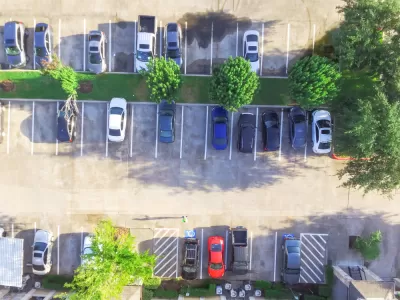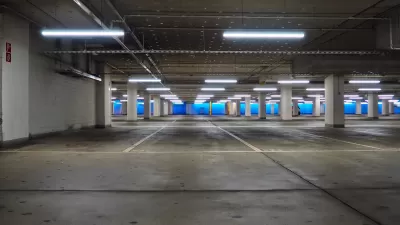The city of San José has the highest minimum parking requirements in the state. Now, it is weighing a proposal that would do away with them altogether and let developers decide how much parking to build.

Maggie Angst reports on the city of San José's proposed elimination of minimum parking requirements, a move that would reduce the cost of new construction and free developers from outdated mandates.
According to Jared Hart of the city’s planning department, one of the ordinance's key goals is "to rightsize parking by effectively removing an arbitrary required zoning code and allow developers to decide on the appropriate amount of parking based on a project’s location, tenants and access to transit." This would provide a more "market-based approach" to parking to ensure more appropriate levels of parking at new developments.
"The elimination of minimum parking requirements not only would provide developers with more leeway to decide the adequate amount of parking spaces for new projects on an individual basis, but it would also allow existing businesses to move into older buildings that may not meet current parking minimums or convert existing parking spaces into permanent outdoor dining areas." The plan would also move San José closer to its goal of reducing single-driver commute trips to 25% by 2040.
Some critics of the plan worry that it would create hardship for low-income residents in a city "which lacks robust public transit options and already suffers from parking shortages in neighborhoods across the city." But San José's minimum parking requirements exceed those of every other major California city, even surpassing famously car-centric Los Angeles.
"The city council will decide whether to approve the plan at a meeting in January 2022."
FULL STORY: ‘Recipe for hardship’ or ‘visionary move’? San Jose weighs eliminating parking requirements

Maui's Vacation Rental Debate Turns Ugly
Verbal attacks, misinformation campaigns and fistfights plague a high-stakes debate to convert thousands of vacation rentals into long-term housing.

Planetizen Federal Action Tracker
A weekly monitor of how Trump’s orders and actions are impacting planners and planning in America.

In Urban Planning, AI Prompting Could be the New Design Thinking
Creativity has long been key to great urban design. What if we see AI as our new creative partner?

King County Supportive Housing Program Offers Hope for Unhoused Residents
The county is taking a ‘Housing First’ approach that prioritizes getting people into housing, then offering wraparound supportive services.

Researchers Use AI to Get Clearer Picture of US Housing
Analysts are using artificial intelligence to supercharge their research by allowing them to comb through data faster. Though these AI tools can be error prone, they save time and housing researchers are optimistic about the future.

Making Shared Micromobility More Inclusive
Cities and shared mobility system operators can do more to include people with disabilities in planning and operations, per a new report.
Urban Design for Planners 1: Software Tools
This six-course series explores essential urban design concepts using open source software and equips planners with the tools they need to participate fully in the urban design process.
Planning for Universal Design
Learn the tools for implementing Universal Design in planning regulations.
planning NEXT
Appalachian Highlands Housing Partners
Mpact (founded as Rail~Volution)
City of Camden Redevelopment Agency
City of Astoria
City of Portland
City of Laramie





























